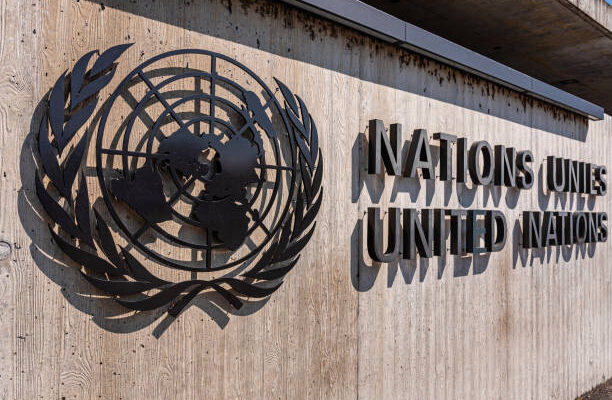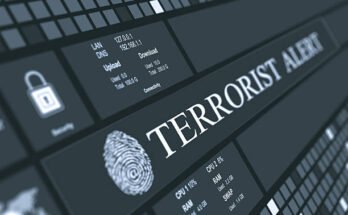The United Nations (UN) stands as a symbol of international cooperation and diplomacy, founded in the aftermath of World War II to prevent the horrors of global conflict from recurring. Since its establishment in 1945, the UN has played a pivotal role in shaping the world’s political landscape. Addressing a wide array of global issues, and promoting peace, security, human rights and sustainable development. This article delves into the multifaceted role of the UN in world politics, exploring its historical evolution, structure, functions, challenges, and the impact it has had on international affairs.
-
The Foundation of the United Nations
The foundation of the United Nations can be traced back to the catastrophic aftermath of World War II. As the war concluded in 1945, the international community recognized the urgent need for a new, more effective system for maintaining global peace and security. This vision led to the establishment of the UN. Furthermore, which replaced the failed League of Nations and aimed to create a more robust international organization that could prevent future conflicts.
The UN’s creation was formalized through the United Nations Charter, signed by 51 countries on June 26, 1945, in San Francisco, California. During, the Charter outlined the principles and objectives of the UN. Emphasizing the sovereignty of nations, the peaceful resolution of disputes, and the promotion of human rights. It also established key UN organs, such as the General Assembly, the Security Council, and the International Court of Justice.
-
Structure of the United Nations
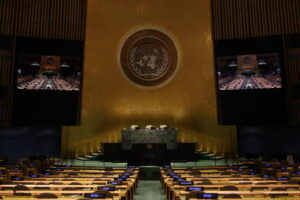 (Photo from iStock)
(Photo from iStock)
The United Nations is a complex organization consisting of multiple organs and specialized agencies, each with distinct roles and responsibilities.
- General Assembly: The General Assembly serves as the UN’s principal deliberative body, where all member states have equal representation. It discusses and makes recommendations on various global issues, including peace and security, development, human rights, and international law.
- Security Council: It has 15 members, five of which are permanent (China, France, Russia, the United Kingdom, and the United States) with veto power, and ten are elected by the General Assembly for two-year terms. The Security Council can authorize military action and impose sanctions.
- Secretariat: The Secretariat is the UN’s administrative arm, headed by the Secretary-General, who is appointed by the General Assembly upon the Security Council’s recommendation. The Secretariat oversees the day-to-day operations of the organization, carries out peacekeeping missions, and facilitates international cooperation.
-
The Multifaceted Roles of the United Nations
 (Photo from iStock)
(Photo from iStock)
The United Nations plays a multifaceted role in global politics, addressing a wide range of issues and challenges. Its core functions can be broadly categorized into the following areas:
- Maintaining International Peace and Security:
- Conflict Prevention: The UN aims to prevent armed conflicts through diplomatic negotiations, peacekeeping missions, and mediation efforts.
- Peacekeeping: UN peacekeeping missions are deployed to conflict zones to help maintain ceasefires, protect civilians, and facilitate post-conflict reconstruction and reconciliation.
- Sanctions: The Security Council can impose sanctions on countries or entities that pose a threat to international peace and security, ranging from arms embargoes to economic restrictions.
-
Promoting Human Rights and Rule of Law:
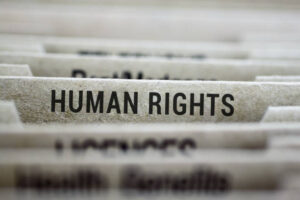 (Image from iStock)
(Image from iStock)
- Universal Declaration of Human Rights: The UN has been instrumental in establishing and promoting human rights standards through documents like the Universal Declaration of Human Rights and various international treaties.
- Human Rights Council: The UN Human Rights Council is responsible for monitoring. Moreover, addressing human rights violations worldwide.
- International Criminal Court: The International Criminal Court (ICC) prosecutes individuals for genocide, war crimes, and crimes against humanity.
-
Sustainable Development:
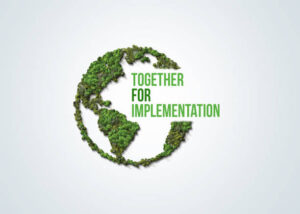 (Photo from iStock)
(Photo from iStock)
- Sustainable Development Goals: The UN’s 2030 Agenda for Sustainable Development includes 17 Sustainable Development Goals (SDGs) aimed at ending poverty, protecting the planet, and ensuring prosperity for all.
- Environmental Protection: The UN addresses environmental issues and climate change through organizations like the United Nations Environment Programme (UNEP) and the Intergovernmental Panel on Climate Change (IPCC).
-
International Cooperation and Diplomacy:
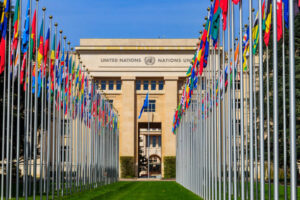 (Photo from iStock)
(Photo from iStock)
- Conflict Resolution: The UN mediates disputes, facilitates negotiations, and provides a platform for dialogue between nations.
- Treaties and Conventions: The UN helps negotiate and enforce international agreements, such as the Paris Agreement on climate change and the Nuclear Non-Proliferation Treaty.
- Humanitarian Diplomacy: The UN collaborates with governments, non-governmental organizations, and other actors to address humanitarian crises and deliver aid.
-
Challenges and Criticisms
 (Image from iStock)
(Image from iStock)
While the United Nations has made significant contributions to global politics, it is not without its challenges and criticisms:
- Ineffectiveness in Conflict Resolution: The Security Council’s veto power held by the five permanent members has been a source of criticism. As it can impede timely and decisive action in cases of mass atrocities or conflicts.
- Resource Constraints: Further, leading to budget constraints and uncertainties in funding its operations.
- Bureaucracy and Inefficiency: The UN’s bureaucracy and complex decision-making processes can slow down its ability to respond to urgent global issues.
-
Impact on International Affairs
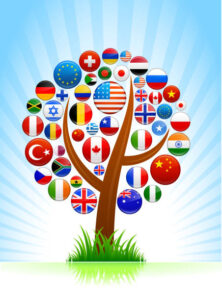 (Photo from iStock)
(Photo from iStock)
Despite its challenges, the United Nations has had a significant impact on international affairs:
- Peace and Security: The UN has helped prevent major interstate conflicts. And has played a crucial role in ending numerous civil wars and conflicts. Particularly through its peacekeeping missions.
- Human Rights: The UN’s efforts have contributed to the development of human rights norms and the protection of individuals from state abuse.
- Sustainable Development: The UN has set a global agenda for sustainable development. Which has led to significant progress in areas such as poverty reduction, health, education, and gender equality.
Conclusion
The United Nations occupies a central position in world politics. Representing the collective efforts of the international community to address global challenges. Evidently, the organization continues to evolve. And adapt to meet the ever-changing dynamics of the global political landscape. The United Nations remains a crucial forum for dialogue, cooperation. And action in a world marked by both unprecedented opportunities and complex challenges. Its role in shaping the future of our interconnected world is undeniably significant.
Reference:
United Nations
Thinking about why we need Political Parties, click on the link below:
Why do we need Political Parties

